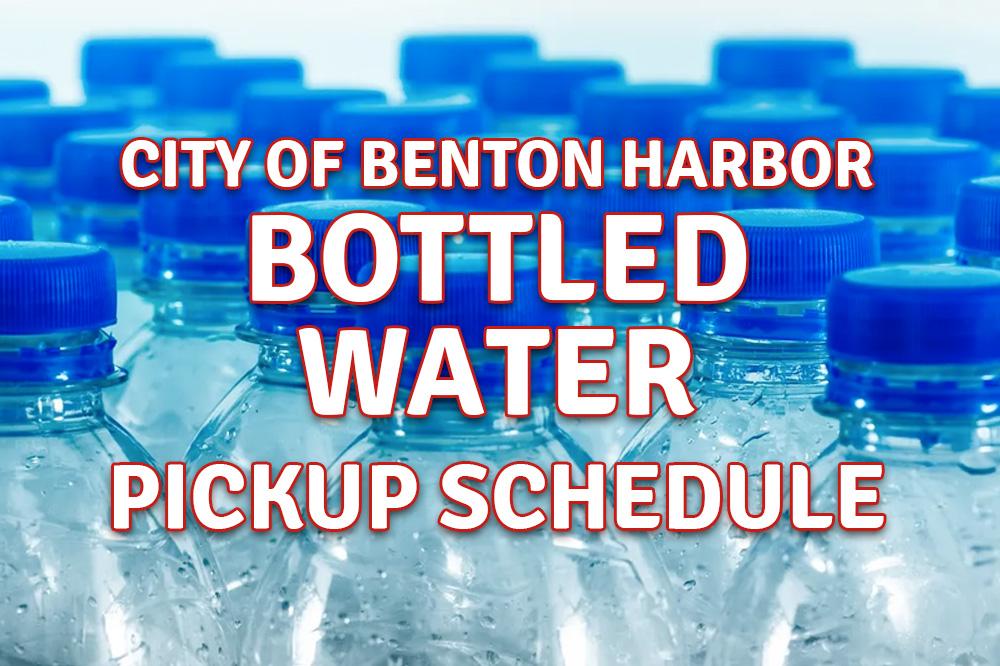Residents of Benton Harbor with elevated levels of lead in their municipally supplied drinking water have help on the way from the state of Michigan — less than two weeks after 20 nonprofit organizations appealed to the federal government to take action.
The Michigan Department of Environment, Great Lakes and Energy on Wednesday announced several steps that will be taken to assist the community, including providing bottled water, going door-to-door to ensure distribution and proper installation of faucet lead filters, and testing of the blood-lead levels of children.
The moves come after 20 environmental and public advocacy organizations filed a petition with the U.S. Environmental Protection Agency, urging federal intervention to secure safe water supplies for the southwest Michigan city's nearly 10,000 residents. The ongoing exposure to high lead levels for Benton Harbor residents, 85% of whom are Black, hearkened many back to the Flint water crisis of 2014, and was framed as an environmental justice issue.
Since fall 2018, more than 60 homes in the city have tested for lead levels in their drinking water that exceed the federal government's action level of 15 parts per billion. One home tested for 889 parts per billion, nearly 60 times the federal safety limit.
"The State of Michigan remains committed to ensuring every Michigander has access to safe drinking water," EGLE spokesman Scott Dean said. "Benton Harbor’s aging drinking water infrastructure is a major focus of that effort and the work to remove lead from people's drinking water is accelerating."
The Rev. Edward Pinkney,president of the grassroots Benton Harbor Community Water Council, praised the new developments. Pinkney made an urgent appeal for federal, state or local governments to provide an alternate water supply at a press conference announcing the EPA petition Sept. 9.
"I am happy to see that they have taken my advice and are putting this into operation," he said. "We shouldn’t have had to wait three years for this — that’s the unfortunate part."
Dean said the residential door-to-door effort will "provide assurance that every household in Benton Harbor has been visited and offered a free water filter as part of an enhanced filter distribution effort." The plan is to complete this effort by Oct. 8, he said. Free bottled water will be made available to the community until the filter distribution is completed.

An expanded public education and community outreach campaign also will be conducted to increase awareness of the city’s current water quality and the availability of water filters and resources for residents, Dean said.
"We’re acting on the feedback from residents that they either didn’t know about the 2019 filter distribution or didn’t know how to install or maintain the filters," he said. "This door-to-door effort is to not only make sure that everyone who wants a filter gets one, but also providing education and hands-on help in installing and maintaining the filters."
High lead exposure also has been tied to lower IQ, decreased ability to pay attention and underperformance in school.
"That is huge — that has never taken place here," Pinkney said of the blood lead testing in children.
Roper noted that the state's end-of-October time frame for testing children's blood for lead, combined with adding lead water filters to people's taps in early October, could mean that by the time testing is done, "the lead that would have been in their blood will have likely moved into the soft tissue and bones" — still capable of harming their health, but less likely to turn up in a blood test.
Gov. Gretchen Whitmer's budget included $10 million in additional investment to replace lead service lines in Benton Harbor and $15 million for the Emergency Drinking Water Fund to help the state address future drinking water emergencies.
"As part of this investment, the state will also provide technical support to communities dealing with lead service line removal," Dean said.
All together, the state has leveraged $18.6 million and has committed to replacing 100% of Benton Harbor’s lead service lines.
But waiting on the pipe replacements would have left residents drinking potentially lead-tainted water in the interim, perhaps several years. That's what makes the latest announcements important, Pinkney said.
"We’re going to do what we need to do to make sure this community has safe water," he said. "That’s our only priority. I don’t care about the politics of this, or any of that. We can no longer sit by and let our children be poisoned with lead."
Contact Keith Matheny: 313-222-5021 or kmatheny@freepress.com.
